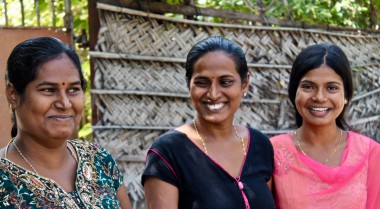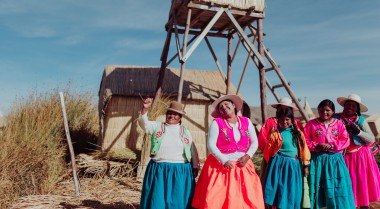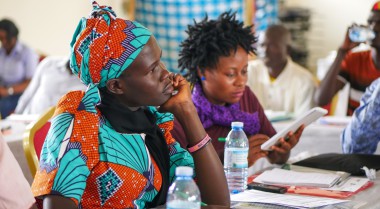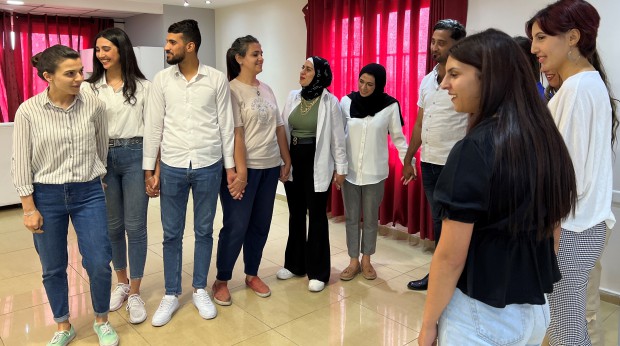Developing National Action Plans on WPS: What role can civil society play?
National Action Plans (NAPs) on Women, Peace and Security (WPS) are powerful instruments that allow states to implement the United Nations WPS Agenda. This aims to ensure that women are recognised as relevant actors and drivers for change in peacebuilding and conflict prevention. During our Gender Expert's Learning Exchange National Action Plans and beyond: local women peacebuilders strategies, GPPAC members and WPS experts discussed what a successful NAP should look like. GPPAC Gender Expert Luisa del Turco, who has been working with the Italian NAPs since 2010, led the exchange. Learning from Lebanon, Europe, and Southeast Asia, participants identified four ways in which civil society organisations can influence and promote the development and implementation of NAPs:
- Localising the WPS Agenda through locally-led projects
- Advocating for the prioritisation of conflict prevention, demilitarisation, and pacifism
- Engaging with regional organisations and decision-makers
- Forming a bridge between national policies and locally-led initiatives
Learning from Lebanon: Localising the WPS Agenda through locally-led projects
The red thread that guided the conversation was the importance of the involvement of local women and civil society leaders at every step of the development and implementation of NAPs. Our Gender Focal Point, Shirine Jurdi from Lebanon, told us about her experience of working with the Localisation Programme, the Global Network of Women Peacebuilders promoted in the country. During the meetings held with local stakeholders, Shirine discovered that most of the people she met did not know anything about the UN Resolution 1325 on WPS.
“These people at the local level were implementing the Lebanese NAP on WPS without even knowing about it, and they were doing an excellent job despite the many challenges they were facing.”
This demonstrates that locally-led action is crucial for a true and effective implementation of the WPS agenda. For this reason, Shirine continues to work on localisation to ensure that the voices, contributions, and perspectives of local women and peace actors will be encompassed in the future Lebanese peace and security.
Learning from Europe: Advocating for the prioritisation of conflict prevention, demilitarisation, and pacifism
Transporting ideas from the local to the national level is crucial for the effective implementation of the WPS Agenda. It is with great pride that Heidi Meinzolt, board member for Europe of the Women's International League for Peace and Freedom (WILPF), told us the success story of the women’s groups in Albania.
"For twenty-two years, they have developed spaces for women and economic possibilities, as well as opportunities to come together. They now have a second NAP, and they have a feeling that they have done important work in a very patriarchal society."
However, this progress is threatened by the rise of the war rhetoric that is now spreading in Europe. This rhetoric represents a real risk that the budget dedicated to WPS will decrease. For this reason, the participation of civil society in the development and implementation of NAPs is crucial to ensure that decision-makers prioritise conflict prevention, demilitarisation, and pacifism in their national actions and policies.
Learning from Southeast Asia: Engaging with regional organisations and decision-makers
Local CSOs play a critical role in developing and implementing NAPs at the regional level. In December 2022, the Association of Southeast Asian Nations (ASEAN) achieved an important milestone by launching the first ASEAN Regional Plan of Action on Women, Peace and Security (ASEAN RPA on WPS). Our Gender Focal Point from Southeast Asia, Ayesah Uy Abubakar, explained that, although the RPA is mostly a state-led endeavour, local civil society leaders actively seek greater involvement in its implementation. CSOs from all over the region are working to implement the WPS agenda into their own national and local contexts.
''Currently, in the Philippines, there is an attempt by a local NGO to inform ASEAN bodies and UN Women of the voices and ideas coming from civil society groups, but this is so far the only organised attempt by CSOs.”
These efforts should inspire other NGOs and CSOs in the region to ensure that, in the future, the implementation of the WPS agenda in ASEAN will become a truly civil society-driven process.
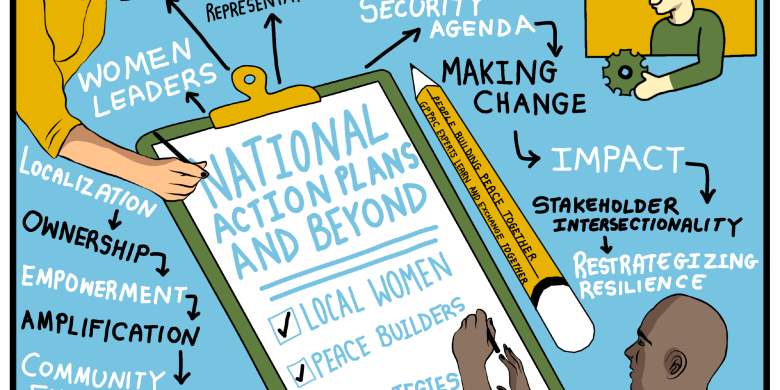
Open discussion: Forming a bridge between national policies and locally-led initiatives
Although the road leading to the meaningful involvement of local women and CSOs in developing and implementing NAPs is still long, the progress achieved so far is remarkable. The experiences shared by our Gender Focal Points show that local CSOs around the world are motivated to engage with national and regional authorities to implement the WPS agenda. Some participants highlighted that the greatest potential of local CSOs is their ability to bridge national policies and locally-led initiatives. By bringing the knowledge and expertise of local women to regional and national decision-making spaces, local CSOs can ensure that the policies developed are responsive to the needs of local communities. Moreover, by coming together during cross-regional exchanges such as the ones promoted by GPPAC, local peacebuilders can learn from the experiences of their peers and apply the knowledge acquired to their own local contexts. For this reason, our network approach is crucial to empower organisations and provide them with new tools to be drivers for change in the development of NAPs and the implementation of the WPS in their regional, national, and local contexts.
To learn more about the event and its key findings, you can find the Summary Note written by our Gender Expert, Luisa del Turco, here.
